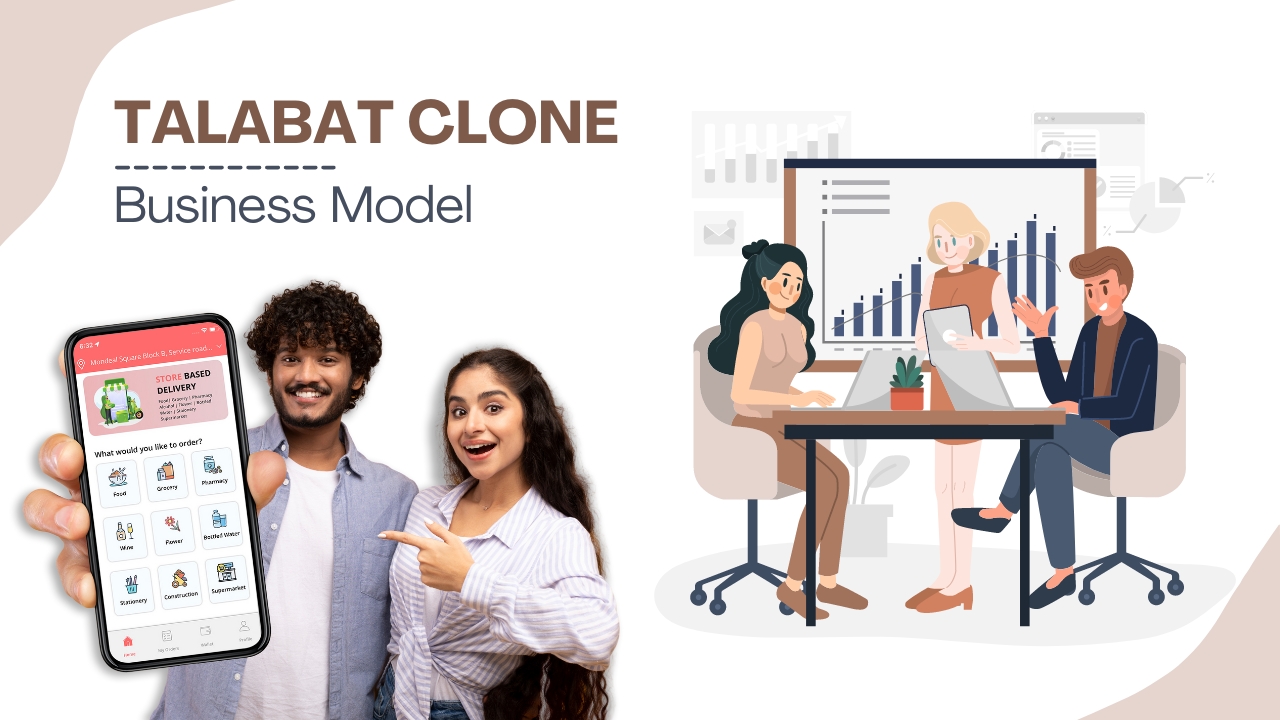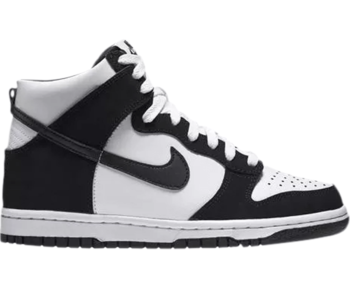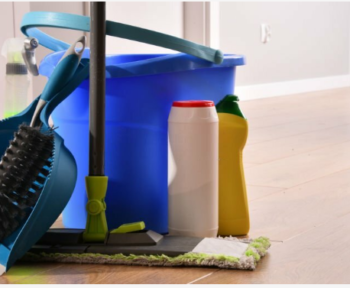Talabat, the largest online food ordering company in the UAE, is witnessing a static rise in multiple Talabat Clones. Why? Businesses built around successful business models tend to have the same effect on people. In this blog, you will learn about clone app development and the Talabat business model, with a key focus on white-labeling.
Introduction
Since our demands with food delivery apps regarding user experience are common globally, starting one doesn’t take much time. However, the same cannot be said for app design and development. Developing an app capable of processing thousands of new orders every hour demands the utmost preparation. That’s why professional mobile app development companies take matters into their own hands and support business owners with their expertise.
Talabat Facts and Figures
Since its inception in 2004, Talabat has revolutionized the on-demand food delivery landscape in the UAE. They made several great mergers and critical business decisions with the right methodology. One of them was to partner with multiple food delivery companies, helping them gain the bulk of the market share.
Another one was expanding to multiple on-demand services, i.e., from going food to delivering groceries and much more. Today, Talabat holds more than 70 percent of the UAE’s market share of food delivery services. The market is expected to exceed seven billion U.S. dollars by 2024.
Talabat Business Model
Many businesses change their models per market to stream their profits. Some of them even change their demographics and products. However, being an app-based company, many on-demand apps cannot function the same and solely rely on their app’s usability and functionality. This is where Talabat is known to have a fair share of control in terms of design and development.
Like many other on-demand companies, Talabat’s business model is based on hyperlocal delivery services. The term ‘hyperlocal’ refers to the nature of modern-day deliveries run by location based services. Here, end-to-end deliveries help users get the best delivery experience in minutes. It also depends on how far the restaurant is from their pickup location.
Apart from going ‘hyperlocal,’ Talabat uses best-in-class technology to gather and transform data science into valuable numbers. For instance, finding which region responds to which kind of food when it’s being delivered at discounts. The same is said for the drivers to get the most bookings at the right place and time. Talabat often combines these two business models to surge prices and send push notifications to create more profitable opportunities.
Commission, Ads, and Subscription Plans for the Talabat Clone
As mentioned earlier, understanding the business model of an on-demand delivery service is easy, but implementing it without imminent failure is hard. There are several different approaches one could opt for in app development. However, the best solution only comes with buying a ready-made script.
Here, the script, or the Talabat Clone, made with the help of third-party developers, offers similar services and features. Along with the space for the business owner to customize as per the market, many revenue streams are kept the same for quick business expansion. Therefore, a budding entrepreneur or an existing restaurant can make more money from the Talabat Clone by entering the delivery aspect of the business. Let’s understand in detail.
Commissions
Making money from each order rather than getting one big cut is very profitable. It is largely done via commissions. Your app allows each restaurant and driver to become a working part of an active business model. In return, you can deduct a hefty fee for it, often called commissions. The amount largely depends on the order volume within the online market.
Advertisements
Talabat monetizes the advertisements by showing them as banners to get great word of mouth. Many on-demand applications also show banner ads, which you can get a hold of in the Talabat Clone. You can even create a home page banner specific to the target audience’s location. Customers usually order from the banners, and thus, restaurants get a lot of advertisements. With every touch and conversion, your business would receive huge sums of money from other restaurants to charge ads on your app.
Subscription Plans
Occasionally, a business goes through a dreary phase and looks for something new to try. The same thing happened with Talabat; soon after, different solutions were tried and tested. However, not much, but one stuck through with the customers, and that was the addition of subscription plans. By definition, it is a plan to remove extra fees the customer pays. The same applies to drivers getting the full amount mentioned without commission cuts. Such plans can be monthly or for 1 whole year, depending on the benefits.
Talabat Clone Features: Understanding White-Labeling and Pre-built Scripts
Today’s food and grocery delivery app stands atop the on-demand service empire because of its seamless user experience. But how would you know what kind of user experience works best? Presumably, it would be a great idea to see a successful app and replicate it as your own.
But it doesn’t end with the user experience. The features, sub-components, UI/UX, and even the development nature play a major role in the success of a delivery business. Traditional businesses cannot compete with this, mainly because of the modern-day behavior of customers with their smartphones. That’s why it keeps coming back to the user experience.
Part of the reason is because the action is quick. Even if someone gets a whiff of a failed but promising startup, things never end until the idea is completely dried out. Again, all of this comes straight back to the customers. A great-looking app that delivers a wide range of food items within minutes takes the top spot. Let’s understand why you need a clone to get started in the first place.
Design
Hungry customers planning to eat lunch or dinner don’t wait too long. Otherwise, someone else takes their place. The thought process behind this is simple: tap on the menu to go to a restaurant, see the menu, select a meal, and finally place the order by online payment. Adding simple design, eye-catching icons, great discounts, and a wide range of meals is important in between all this.
Payment
Being an online business, everything goes through the system—even cash. But you want quick commissions, so online payment gateways are the best. Tracking liquid money is far more difficult than online. That is why Talabat has its own payment platform, offering premium discounts. However, your business is new in the online world, so you must test your target audience first. Therefore, offer multiple payment choices, like credit/debit cards and in-app wallets, to see the desired response before moving forward.
Partners
The Talabat Clone Script contains not only apps but much more. Your online presence matters, and for that, you need a website. Without a website, all the organic searches from people looking for new apps would not yield your business. Moreover, users, drivers, and restaurant apps analyze every scrap of data to offer personalized solutions.
For that, you need an admin panel. The restaurant app has several advanced features, such as managing business hours and keeping track of orders. In short, to make the most of your partnered drivers and restaurants, you need dedicated platforms from the Talabat Clone.
Why do you need the Talabat Clone app for your food delivery business?
Skip the design and development phases altogether. Get full ownership of the source code of the Talabat Clone package. Your initial investment would not take much, and you would spend a fraction of the overall custom app development from scratch. To do this successfully, you must partner with a professional white-label firm. They will launch the app and complete all the formalities.
Moreover, they are also responsible for sending you 100% licensed source code at no additional cost. The Talabat Clone will be tested and launched as soon as you provide them with details of your business name, logo, and other branding specifications.
The customization of the user app, delivery driver app, and restaurant app takes around 1-2 weeks to complete. However, to get things started, you would need a demo app to test the features and usability as much as you can. Once you decide, sign an NDA and a contract to finalize the deal. Make sure that the agreement prohibits the white-label firm from using your name or technology in any way whatsoever.
Conclusion
To make money from running an on-demand business like Talabat, you need to start a similar business with the help of a Talablat Clone. Why? Spending all your valuable time developing a similarly popular app is not a wise decision. In the end, people always choose a reliable and experienced company. Therefore, you must launch quickly with as many features as possible to understand the market and mold your business. All it takes is patience and critical thinking without hiring developers but professional white-label firms.





